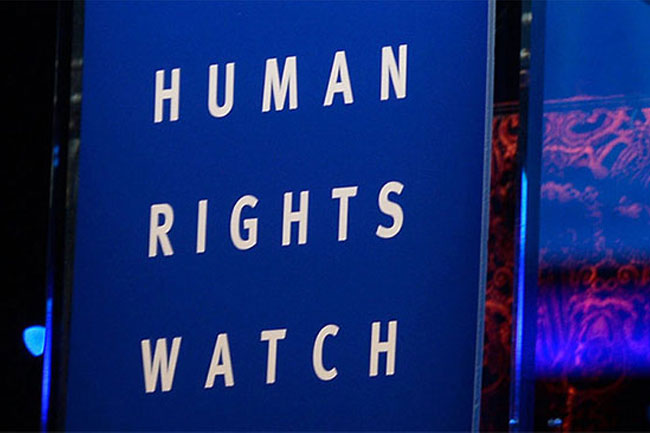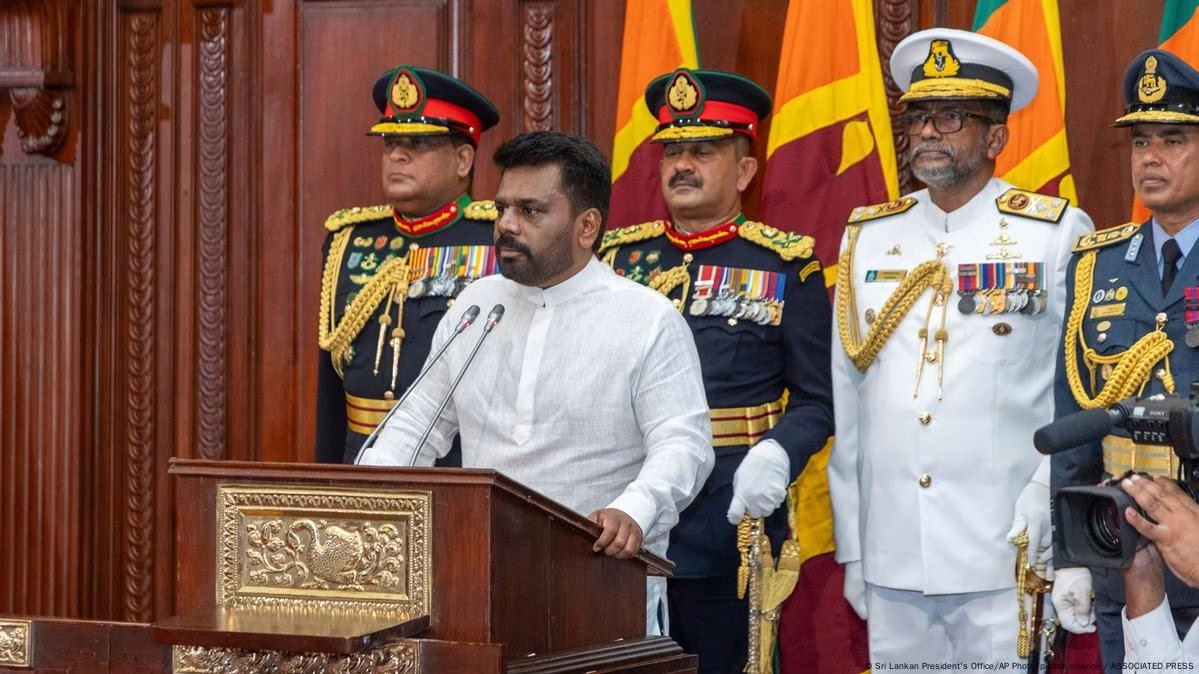Sri Lanka’s new President needs to address longstanding abuses, impunity – Human Rights Watch

Sri Lanka’s new president, Anura Kumara Dissanayake, should address the country’s many human rights problems by fulfilling and building upon pledges he made in recent election campaigns, Human Rights Watch has said in a letter to the president.
Human Rights Watch said in a statement that in his election manifesto, Dissanayake pledged to repeal the Prevention of Terrorism Act, remove abusive provisions of the Online Safety Act, establish an independent Directorate of Public Prosecutions separate from the attorney general’s office, aggressively combat corruption, and revise economic policies to promote equity.
“However, while his government has announced renewed investigations into the 2019 Easter Sunday bombings and other emblematic crimes, it should also reverse the failures of previous administrations to address severe human rights violations committed during the 1983-2009 civil war between the government and the separatist Liberation Tigers of Tamil Eelam”, it added.
“President Dissanayake faces a daunting list of human rights problems, including enduring discrimination against minority communities, which has long divided the country,” said Meenakshi Ganguly, deputy Asia director at Human Rights Watch. “To live up to its commitments for reform, the new administration should prioritize addressing the entrenched impunity surrounding decades of grave violations, corruption and financial mismanagement, and abusive security force practices severely restricting the rights of Tamils and Muslims.”
Furthermore, the statement highlighted: “Sri Lanka’s economic crisis has had a disastrous impact on millions of people, eroding public services essential to their rights and placing the burden of efforts to quickly raise revenues on those least able to cope.
“In March 2023, then-President Ranil Wickremesinghe negotiated a US$3 billion bailout with the International Monetary Fund focused on raising government revenues while tackling corruption and improving social protection. However, it shifted the burden of recovery principally onto people with low incomes, while social protection provision is inadequate and new anticorruption legislation has not yet been widely applied.”
“The Dissanayake government has pledged to implement more progressive tax policies; increase government provision to uphold Sri Lankans’ economic and social rights, such as to health care, education, and social security; and clamp down on corruption.”
Meanwhile, Human Rights Watch noted that previous governments have pledged to end human rights violations and address past crimes, but they have failed to act, instead pursuing repressive policies while shielding those responsible for past violations and denying justice to victims.
It further alleged that successive administrations have harassed and intimidated thousands of families of victims of enforced disappearance, while human rights defenders and journalists have been subject to intrusive government surveillance, threats, and restrictions.
“President Dissanayake should act on the evidence on enforced disappearances collected by previous commissions of inquiry, reform or replace the Office of Missing Persons, and ensure instead a body that has the trust of victims’ families and the technical capacity to identify remains discovered in mass graves”, Human Rights Watch said.
The statement also added: “The new government should also immediately impose a full moratorium on the use of the Prevention of Terrorism Act and release remaining prisoners who were convicted on the basis of confessions obtained under torture. It should ensure fair and thorough investigations of grave crimes, including the 2019 Easter Sunday bombings, as well as emblematic cases that were partially investigated between 2015-19 before those investigations were dropped under then-President Gotabaya Rajapaksa.”
“To put an end to the repression of civil society groups, the Dissanayake administration should place the National Secretariat for Non-Governmental Organizations under a ministry responsible for supporting social welfare activities, instead of treating independent groups as security risks. It should also direct the police, military, and intelligence agencies to end the intimidation and arbitrary surveillance of human rights defenders and civil society activists,” the statement added.
To protect minority rights, the new government should direct state agencies to end the practice of encroaching upon or denying access to minority religious sites, such as Hindu temples, Human Rights Watch said.
“It should also adopt reforms to the Muslim Marriage and Divorce Act approved by a previous cabinet in 2021. It should repeal laws that are used to criminalize same-sex relationships and to target transgender people, and back a longstanding demand by the women’s rights movement to legalize abortion in the country.”
“President Dissanayake and his new government have an opportunity to deliver long-sought-after reforms to governance,” Ganguly said. “Dissanayake should follow through and build upon his rights commitments to set a new course for human rights in Sri Lanka.”
-Ada Derena

